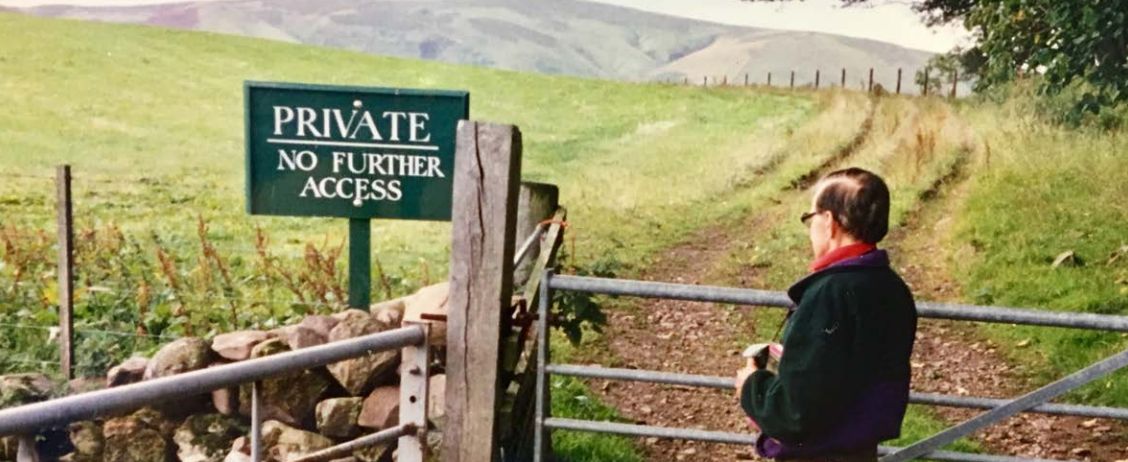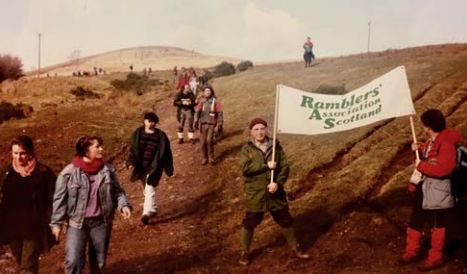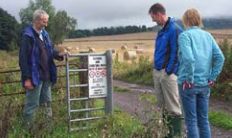
Right to Roam
The campaign to enshrine Scotland’s historic traditions of responsible access – sometimes known as ‘the right to roam’ – into law dates back to the 1890s, when Liberal MP James Bryce placed his Access to Mountains (Scotland) bill before Westminster. All subsequent efforts failed as successive governments avoided trying to get legislation through the House of Lords.

However in the 1990s, Scottish Labour MPs - led by enthusiastic hillwalker John Smith were pressing the case for responsible access legislation for Scotland. In 1994 a report from the government’s advisers on the countryside, Scottish Natural Heritage, called for an ambitious new approach which would give Scotland access arrangements “amongst the best in Europe”. The subsequent legislation was the culmination of many decades of campaigning led by Ramblers Scotland.
On 23 January 2003, the Scottish Parliament passed the Land Reform (Scotland) Act, which sets down statutory rights of access, if taken responsibly, over most areas of land and water.
The act applies to all non-motorised access such as walking, cycling, horse riding, climbing, sailing and canoeing - and to the vast majority of land and inland water.
The hard-won legislation placed Scotland at the top of the international charts in terms of access. Scotland’s excellent access rights – together with the Scottish Government’s National Walking Strategy – have supported strong growth in recreational walking, up 13 per cent in six years. Walking now contributes an estimated £1.26 billion a year to the Scottish economy, according to VisitScotland. While there are still occasional issues with obstructions and non-compliant signage, conflict between walkers and landowners is relatively rare, due in no small part to the common sense, bigger picture approach of all – from farmers and foresters, to walkers and cyclists.

Cameron McNeish, who campaigned for the act during his time as Ramblers Scotland president, said: “It’s important to remember that the access provisions of the Land Reform (Scotland) Act could never have been achieved through Westminster. The land-owning interests in the House of Lords would have continued to vote it down.
“The creation of the Scottish Parliament was crucial in giving voluntary organisations like Ramblers the confidence to campaign hard and ultimately very effectively to enshrine our traditional de facto right to roam responsibly over land in Scotland in legislation. It’s vital to remember those organisations that campaigned over decades to bring this legislation into existence; legislation that has become the envy of the world.”
Dave Morris, Ramblers Scotland’s director during the campaign, said: “Access to nature should be a fundamental human right, recognised across the world and promoted by the United Nations. The Scottish right to roam legislation ensures citizens can access most of our land and water, lays obligations on land managers to facilitate this access and provides public bodies with duties to protect these rights.”

